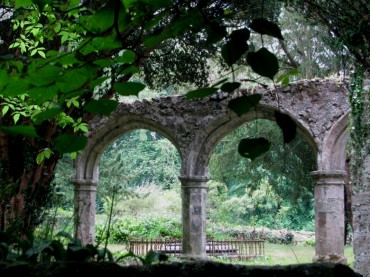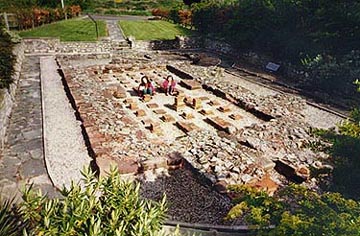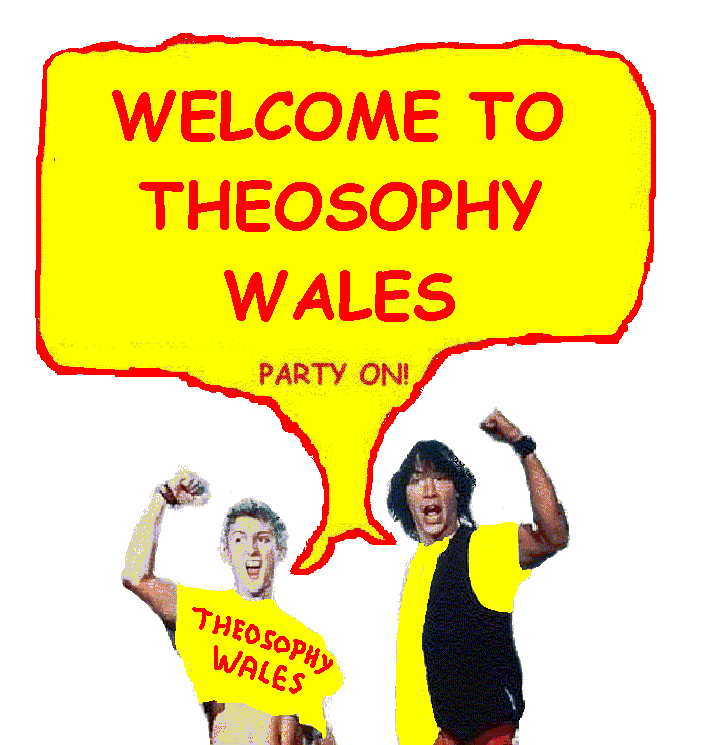

____________
THE
OF
THEOSOPHY
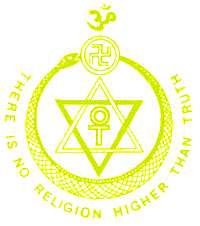
A Definitive Work on Theosophy
By
William Quan Judge
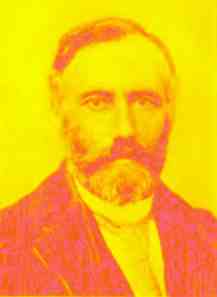
CHAPTER 2
General Principles
The teachings of Theosophy deal for the present chiefly with our earth,
although its purview extends to all the worlds, since no part of the manifested
universe is outside the single body of laws which operate upon us. Our globe
being one of the solar system is certainly connected with Venus, Jupiter, and
other planets,
but as the great human family has to remain with its material vehicle --
the earth -- until all the units of the race which are ready are perfected, the
evolution of that family is of greater importance to the members of it. Some
particulars respecting the other planets may be given later on. First let us
take a general view of the laws governing all.
The universe evolves from the unknown, into which no man or mind,
however high, can inquire, on seven planes or in seven ways or methods in all
worlds, and this sevenfold differentiation causes all the worlds of the
universe and the beings thereon to have a septenary constitution. As was taught
of old, the little
worlds and the great are copies of the whole, and the minutest insect as
well as the most highly developed being are replicas in little or in great of
the vast inclusive original. Hence sprang the saying, "as above so
below" which the Hermetic philosophers used.
The divisions of the sevenfold universe may be laid down roughly as: The
Absolute, Spirit, Mind, Matter, Will, Akasa or Aether, and Life. In place of
"the Absolute" we can use the word Space. For Space is that which
ever is, and in which all manifestation must take place. The term Akasa, taken
from the Sanskrit, is used in place of Aether, because the English language has
not yet evolved a word to properly designate that tenuous state of matter which
is now sometimes called Ether by modern scientists. As to the Absolute we can
do no more than say IT IS. None of the great teachers of the School ascribe
qualities
to the Absolute although all the qualities exist in It. Our knowledge
begins with differentiation, and all manifested objects, beings, or powers are
only differentiations of the Great Unknown. The most that can be said is that
the Absolute periodically differentiates itself, and periodically withdraws the
differentiated into itself.
†
The first differentiation -- speaking metaphysically as to time -- is
Spirit, with which appears Matter and Mind. Akasa is produced from Matter and
Spirit, Will is the force of Spirit in action and Life is a resultant of the
action of Akasa, moved by Spirit, upon Matter.
But the Matter here spoken of is not that which is vulgarly known as
such. It is the real Matter which is always invisible, and has sometimes been
called Primordial Matter. In the Brahmanical system it is denominated
Mulaprakriti. The
ancient teaching always held, as is now admitted by Science, that we see
or perceive only the phenomena but not the essential nature, body or being of
matter.
Mind is the intelligent part of the Cosmos, and in the collection of
seven differentiations above roughly sketched, Mind is that in which the plan
of the Cosmos is fixed or contained. This plan is brought over from a prior
period of manifestation which added to its ever-increasing perfectness, and no
limit can be set to its evolutionary possibilities in perfectness, because
there was never
any beginning to the periodical manifestations of the Absolute, there
never will be any end, but forever the going forth and withdrawing into the
Unknown will go on.
Wherever a world or system of worlds is evolving there the plan has been
laid down in universal mind, the original force comes from spirit, the basis is
matter -- which is in fact invisible -- Life sustains all the forms requiring
life, and Akasa is the connecting link between matter on one side and
spirit-mind on the other.
When a world or a system comes to the end of certain great cycles men
record a cataclysm in history or tradition. These traditions abound; among the
Jews in their flood; with the Babylonians in theirs; in Egyptian papyri; in the
Hindu
cosmology; and none of them as merely confirmatory of the little Jewish
tradition, but all pointing to early teaching and dim recollection also of the
periodical destructions and renovations.
The Hebraic story is but a poor fragment torn from the pavement of the
Temple of Truth. Just as there are
periodical minor cataclysms or partial destructions, so, the doctrine
holds, there is the universal evolution and involution. Forever the Great
Breath goes forth and returns again. As it proceeds outwards, objects, worlds
and men appear; as it recedes all disappear into the original source.
This is the waking and the sleeping of the Great Being; the Day and the
Night of Brahma; the prototype of our waking days and sleeping nights as men,
of our disappearance from the scene at the end of one little human life, and
our return again to take up the unfinished work in another life, in a new day.
The real age of the world has long been involved in doubt for Western
investigators, who up to the present have shown a singular unwillingness to
take instruction from the records of Oriental people much older than the West.
Yet with the Orientals is the truth about the matter. It is admitted that
Egyptian civilization flourished many centuries ago, and as there are no living
Egyptian schools of ancient learning to offend modern pride, and perhaps
because the Jews "came out of Egypt" to fasten the Mosaic
misunderstood tradition upon modern progress, the inscriptions cut in rocks and
written on papyri obtain a little more credit today than the living thought and
record of the Hindus.
For the latter are still among us, and it would never do to admit that a
poor and conquered race possesses knowledge respecting the age of man and his
world which the western flower of culture, war, and annexation knows nothing
of. Ever since the ignorant monks and theologians of Asia Minor and Europe
succeeded in imposing the Mosaic account of the genesis of earth and man upon
the coming western evolution, the most learned even of our scientific men have
stood in fear of the years that elapsed since Adam, or have been warped in
thought and perception whenever their eyes turned to any chronology different
from that of a few tribes of the sons of Jacob. Even the noble, aged, and
silent pyramid of Gizeh, guarded by Sphinx and Memnon made of stone, has been
degraded by Piazzi Smyth and others into a proof that the British inch must
prevail and that a "Continental Sunday" controverts the law of the
Most High. Yet in the Mosaic account, where one would expect to find a
reference to such a proof as the pyramid, we can discover not a single hint of
it and only a record of the building by King Solomon of a temple of which there
never was a trace.
But the Theosophist knows why the Hebraic tradition came to be thus an
apparent drag on the mind of the West; he knows the connection between Jew and
Egyptian; what is and is to be the resurrection of the old pyramid builders of
the Nile valley, and where the plans of those ancient master masons have been
hidden from the profane eyes until the cycle should roll round again for their
bringing forth.
The Jews preserved merely a part of the learning of Egypt hidden under
the letter of the books of Moses, and it is there still to this day in what
they call the cabalistic or hidden meaning of the scriptures. But the Egyptian
souls who helped in planning the pyramid of Gizeh, who took part in the
Egyptian
government, theology, science, and civilization, departed from their old
race, that race died out and the former Egyptians took up their work in the
oncoming races of the West, especially in those which are now repeopling the
American continents. When Egypt and India were younger there was a constant
intercourse between them.
They both, in the opinion of the Theosophist, thought alike, but fate
ruled that of the two the Hindus only should preserve the old ideas among a
living people. I will therefore take from the Brahmanical records of Hindustan
their doctrine about the days, nights, years and life of Brahma, who represents
the universe and the worlds.
The doctrine at once upsets the interpretation so long given to the
Mosaic tradition, but fully accords with the evident account in Genesis of
other and former "creations," with the cabalistic construction of the
Old Testament verse about the kings of Edom, who there represent former periods
of evolution prior
to that started with Adam, and also coincides with the belief held by
some of the early Christian Fathers who told their brethren about wonderful
previous worlds and creations.
The Day of Brahma is said to last one thousand years, and his night is
of equal length. In the Christian Bible is a verse saying that one day is as a
thousand years to the Lord and a thousand years as one day. This has generally
been used to magnify the power of Jehovah, but it has a suspicious resemblance
to the
older doctrine of the length of Brahma's day and night. It would be of
more value if construed to be a statement of the periodical coming forth for
great days and nights of equal length of the universe of manifested worlds.
A day of mortals is reckoned by the sun, and is but twelve hours in
length. On Mercury it would be different, and on Saturn or Uranus still more
so. But a day of Brahma is made up of what are called Manvantaras -- or period
between two men -- fourteen in number. These include four billion three hundred
and twenty
million mortal, or earth, years, which is one day of Brahma.
When this day opens, cosmic evolution, so far as relates to this solar
system, begins and occupies between one and two billions of years in evolving
the very ethereal first matter before the astral kingdoms of mineral,
vegetable, animal and men are possible. This second step takes some three
hundred millions of
years, and then still more material processes go forward for the
production of the tangible kingdoms of nature, including man.
This covers over one and one-half billions of years. And the number of
solar years included in the present "human" period is over eighteen
millions of years.
This is exactly what Herbert Spencer designates as the gradual coming
forth of the known and heterogeneous from the unknown and homogeneous. For the
ancient Egyptian and Hindu Theosophists never admitted a creation out of
nothing, but ever strenuously insisted upon evolution, by gradual stages, of
the
heterogeneous and differentiated from the homogeneous and
undifferentiated.
No mind can comprehend the infinite and absolute unknown, which is, has
no beginning and shall have no end; which is both last and first, because,
whether differentiated or withdrawn into itself, it ever is. This is the God
spoken of in the Christian Bible as the one around whose pavilion there is
darkness.
This cosmic and human chronology of the Hindus is laughed at by western Orientalists,
yet they can furnish nothing better and are continually disagreeing with each
other on the same subject. In Wilson's translation of Vishnu Purana he calls it
all fiction based on nothing, and childish boasting.
But the Free Masons, who remain inactive hereupon, ought to know better.
They could find in the story of the building of Solomon's temple from the
heterogeneous materials brought from everywhere, and its erection without the
noise of a tool being heard, the agreement with these ideas of their Egyptian
and Hindu brothers. For Solomon's Temple means man whose frame is built
up, finished and decorated without the least noise.
But the materials had to be found, gathered together and fashioned in
other and distant places. These are in the periods above spoken of, very
distant and very silent. Man could not have his bodily temple to live in until
all the matter in and about
his world had been found by the Master, who is the inner man, when found
the plans for working it required to be detailed.
They then had to be carried out in different detail until all the parts
should be perfectly ready and fit for placing in the final structure. So in the
vast stretch of time which began after
the first almost intangible matter had been gathered and kneaded, the
material and vegetable kingdoms had sole possession here with the Master -- man
-- who was hidden from sight within carrying forward the plans for the
foundations of
the human temple. All of this requires many, many ages, since we know
that nature never leaps. And when the rough work was completed, when the human
temple was erected, many more ages would be required for all the servants, the
priests, and the counsellors to learn their parts properly so that man, the
Master, might be able to use the temple for its best and highest purposes.
The ancient doctrine is far nobler than the Christian religious one or
that of the purely scientific school. The religious gives a theory which
conflicts with reason and fact, while science can give for the facts which it
observes no reason which is in any way noble or elevating. Theosophy alone,
inclusive of all systems and every experience, gives the key, the plan, the
doctrine, the truth.
The real age of the world is asserted by Theosophy to be almost incalculable,
and that of man as he is now formed is over eighteen millions of years. What
has become at last man is of vastly greater age, for before the present two
sexes appeared the human creature was sometimes of one shape and sometimes of
another, until the whole plan had been fully worked out into our present form,
function, and capacity. This is found to be referred to in the ancient books
written for the profane where man is said to have been at one time globular in
shape. This was at a time when the conditions flavoured such a form and of
course it was longer ago than eighteen millions of years. And when this
globular form was the rule the sexes as we know them had not differentiated and
hence there was but one sex, or if you like, no sex at all.
During all these ages before our man came into being, evolution was
carrying on the work of perfecting various powers which are now our possession.
This was accomplished by the Ego or real man going through experience in
countless conditions of matter all different one from the other, and the same
plan in general was and is pursued as prevails in respect to the general
evolution of the universe to which I have before adverted. That is, details
were first worked out in spheres of being very ethereal, metaphysical in fact.
Then the next step brought the same details to be worked out on a plane
of matter a little more dense, until at last it could be done on our present
plane of what we miscall gross matter. In these anterior states the senses
existed in germ, as it were, or in idea, until the astral plane which is next
to this one was arrived at, and then they were concentrated so as to be the
actual senses we now use through the agency of the different outer organs.
These outer organs of sight, touch and hearing, and tasting, are often mistaken
by the unlearned or the thoughtless for the real organs and senses, but he who
stops to think must see that the senses are interior and that their outer
organs are but mediators between the visible universe and the real perceiver
within. And all these various powers and potentialities being well worked out
in this slow but sure process, at last man is put upon the scene a sevenfold
being just as the universe and earth itself are sevenfold. Each of his seven
principles is derived from one of the great first seven divisions, and each
relates to a planet or scene of evolution, and to a race in which that
evolution was carried out. So the first sevenfold differentiation is important
to be borne in mind, since it is the basis of all that follows; just as the
universal evolution is septenary so the evolution of humanity, sevenfold in its
constitution, is carried on upon a septenary Earth. This is spoken of in
Theosophical literature as the Sevenfold Planetary Chain, and is intimately
connected with Man's special evolution.
______________________
THE
OF
THEOSOPHY

Find out more about
Theosophy with these links

The Cardiff Theosophical Society Website
The National
Wales Theosophy Website
Theosophy
Wales Youtube Channel
Ten Benefits of Studying the Blavatskyan
Theosophical Teachings
Studying
the Blavatskyan Theosophical teachings offers numerous benefits that can
greatly enrich one's understanding of spirituality, philosophy, and the nature
of reality.† Theosophy, as defined by the
writings of Helena Petrovna Blavatsky, has had a profound impact on the
spiritual and philosophical landscape of the modern world. Blavatsky's
teachings draw from a wide range of religious and philosophical traditions,
including Hinduism, Buddhism, and Western esotericism, and present a
comprehensive worldview that addresses fundamental questions about existence,
consciousness, and the cosmos.
Here
are ten benefits of studying the Blavatskyan Theosophical Teachings
1.
Exploration of Esoteric Wisdom
One
of the primary benefits of studying the Blavatskyan Theosophical teachings is
the opportunity to explore esoteric wisdom that is often not readily accessible
in mainstream religious or philosophical traditions. Blavatsky's writings delve
into the esoteric teachings of ancient cultures and mystery schools, shedding
light on profound spiritual truths that have been passed down through the ages.
By delving into these esoteric teachings, students of Theosophy can gain
insights into the nature of consciousness, the structure of the cosmos, and the
evolution of the soul or immortal self.
2.
Synthesis of Eastern and Western Philosophy
Blavatsky's
Theosophical teachings synthesize elements of Eastern and Western philosophy,
offering a comprehensive framework that integrates concepts from diverse
cultural and religious traditions. This synthesis provides students with a
broader perspective on philosophical and spiritual thought, allowing them to
see the underlying unity of seemingly disparate belief systems. By studying
Theosophy, individuals can gain a deeper appreciation for the universal
principles that underlie all wisdom traditions, fostering a sense of unity and
interconnectedness with the world's spiritual heritage.
3.
Understanding of Universal Brotherhood
Central
to Blavatsky's Theosophical teachings is the principle of universal
brotherhood, which emphasizes the essential unity of all beings and the
interconnectedness of life. By studying Theosophy, individuals can develop a
profound understanding of the interconnected nature of existence, recognizing
that all living beings are fundamentally linked and that compassion and empathy
are essential for the evolution of humanity. This understanding can lead to a
greater sense of empathy, kindness, and social responsibility, fostering a more
harmonious and compassionate society.
4.
Insight into the Nature of Reality
The
Blavatskyan Theosophical teachings offer profound insights into the nature of
reality, consciousness, and the unseen dimensions of existence. Through the
study of Theosophy, individuals can explore concepts such as the
multi-dimensional nature of the universe, the existence of subtle energy
realms, and the interconnectedness of the material and spiritual planes. This
exploration can lead to a deeper understanding of the nature of reality beyond
the limitations of the physical senses, opening up new vistas of perception and
understanding.
5.
Personal Spiritual Growth
Studying
the Theosophical teachings can be a transformative journey that facilitates
personal spiritual growth and self-discovery. Blavatsky's writings offer
practical guidance for inner development, including meditation practices,
ethical principles, and the cultivation of spiritual virtues. By applying these
teachings to their lives, individuals can experience profound personal
transformation, leading to greater self-awareness, inner peace, and a sense of
purpose and meaning.
6.
Ethical and Moral Guidance
The
Theosophical teachings provide a comprehensive ethical and moral framework that
can guide individuals in their personal and social interactions. Blavatsky
emphasizes the importance of ethical conduct, altruism, and the pursuit of
wisdom, offering practical guidance for leading a virtuous and meaningful life.
By studying Theosophy, individuals can gain clarity on moral issues, cultivate
a sense of ethical responsibility, and contribute to the greater good of
humanity.
7.
Appreciation of Comparative Religion
The
study of Theosophy encourages an appreciation of comparative religion and the
underlying unity of religious and spiritual traditions. Blavatsky's writings
explore the common threads that run through the world's religions, highlighting
universal spiritual principles that transcend cultural and historical
boundaries. By gaining a deeper understanding of comparative religion through
Theosophy, individuals can develop a more inclusive and pluralistic
perspective, fostering interfaith harmony and mutual respect.
8.
Intellectual Stimulation
The
Theosophical teachings offer a rich and intellectually stimulating framework
for exploring profound philosophical and metaphysical concepts. Blavatsky's
writings encompass a wide range of subjects, including cosmology, metaphysics,
ancient wisdom, and the evolution of consciousness, providing ample material
for intellectual inquiry and contemplation. By engaging with these teachings,
individuals can expand their intellectual horizons, develop critical thinking
skills, and gain a deeper understanding of the fundamental questions that have
intrigued philosophers and mystics throughout history.
9.
Healing and Reconciliation
The
Theosophical teachings offer insights into the nature of healing and
reconciliation, both on a personal and collective level. Blavatsky's writings
delve into the esoteric principles of healing, the nature of disease, and the
interconnectedness of mind, body, and spirit. By studying Theosophy,
individuals can gain a deeper understanding of holistic healing modalities, the
power of the mind in influencing health, and the potential for spiritual
transformation through the healing process. Furthermore, the Theosophical
emphasis on universal brotherhood and compassion can contribute to the
reconciliation of divisions and conflicts within society, fostering a more
harmonious and peaceful world.
10.
Contribution to Global Transformation
Finally,
studying the Blavatskyan Theosophical teachings can empower individuals to
contribute to the ongoing global transformation towards a more enlightened and
compassionate world. Blavatsky's vision of a spiritually awakened humanity,
working towards the betterment of all beings, inspires individuals to engage in
positive action and service to humanity. By embodying the principles of
Theosophy in their lives, individuals can become agents of positive change,
working towards the realization of a more just, peaceful, and sustainable
world.
In
summary, the study of the Blavatskyan Theosophical teachings offers a wide
range of benefits, ranging from personal spiritual growth to the potential for
global transformation. By delving into the esoteric wisdom, ethical principles,
and philosophical insights of Theosophy, individuals can expand their
understanding of the nature of reality, cultivate compassion and empathy, and
contribute to the evolution of humanity towards a more harmonious and
enlightened future. As the Theosophical teachings continue to inspire and guide
seekers of truth and wisdom, their profound impact on individuals and society
is likely to endure for generations to come.
If you run a Theosophy Group, please feel free
to use any of the material on this site
The Most Basic Theosophy
†Website in the Universe
A quick overview of Theosophy†
and the Theosophical Society
If you run a Theosophy Group you†
can use this as an introductory handout.
Theosophy Cardiffís Instant Guide
One liners and quick explanations
H P Blavatsky is
usually the only
Theosophist that
most people have ever
heard of. Letís
put that right
The Voice of the Silence Website
An Independent Theosophical Republic
Links to Free Online Theosophy†
Study Resources; Courses, Writings,†
The main criteria
for the inclusion of
links on this
site is that they have some
relationship
(however tenuous) to Theosophy
and are
lightweight, amusing or entertaining.
Topics include
Quantum Theory and Socks,
Dick Dastardly and Legendary Blues Singers.
A selection of
articles on Reincarnation
Provided in
response to the large †
number of
enquiries we receive at†
Cardiff
Theosophical Society on this subject
The Voice of the Silence Website
This is for everyone, you donít have to live
in Wales to make good use of this Website
Llanidan Old Church, Brynsiencyn,
Anglesey, North Wales.
The 14th Century
church was abandoned in 1844
Llanidan Church,
Brynsiencyn, Anglesey, North Wales.
No Aardvarks were harmed in the
The Spiritual Home of Urban Theosophy
The Earth Base for Evolutionary Theosophy
A B C D EFG H IJ KL M N OP QR S T UV WXYZ
Complete Theosophical Glossary in Plain Text Format
1.22MB
Quick Explanations with Links to
More Detailed Info
What is Theosophy ? Theosophy Defined (More Detail)
Three Fundamental Propositions† Key Concepts of Theosophy
Cosmogenesis†
Anthropogenesis†
Root Races†
Karma
Ascended Masters† After Death States† Reincarnation
The Seven Principles of Man† Helena Petrovna Blavatsky
Colonel Henry Steel Olcott William Quan Judge
The Start of the Theosophical Society
History of the Theosophical Society
Theosophical Society Presidents
History of the Theosophical Society in Wales
The Three Objectives of the Theosophical Society
Explanation of the Theosophical Society Emblem
Glossaries of Theosophical Terms
On the North Wales
coast 22 miles from
the main Roman
Legionary Fort at Chester,
The baths are
believed to be part of a harbour complex
for shipping lead from local mines
An Outstanding
Introduction to Theosophy
By a student of
Katherine Tingley
Elementary Theosophy Who is the Man?† Body and Soul
Body, Soul and Spirit† Reincarnation† Karma
What Theosophy Is† From the Absolute to Man
The Formation of a Solar System† The Evolution of Life
The Constitution of Man† After Death† Reincarnation
The Purpose of Life† The Planetary Chains
The Result of Theosophical Study
An Outline of Theosophy
Charles Webster Leadbeater
Theosophy - What it is† How is it Known?† The Method of Observation
General Principles† The Three Great Truths† The Deity
Advantage Gained from this
Knowledge† The Divine Scheme
The Constitution of Man† The True Man† Reincarnation
The Wider Outlook† Death† Manís Past and Future
Cause and Effect† What Theosophy does for us
Try these if you are looking for a local
Theosophy Group or Centre
UK Listing of Theosophical Groups
Please tell us about your UK Theosophy Group
___________________
into categories
and presented according to relevance of website.
Web Directory
- Add Link - Submit Article - Online Store - Forum
